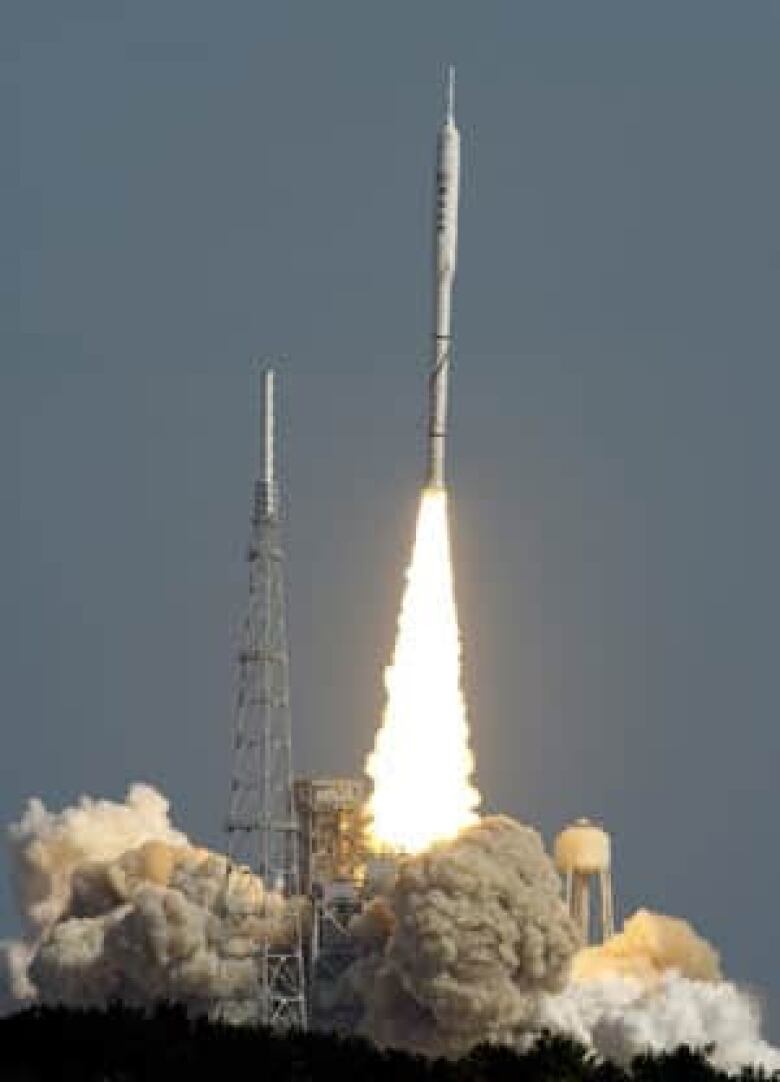NASA launches Ares rocket on 2nd attempt
NASA launched itsnew Ares I-X test rocket at 11:30 a.m. ET on Wednesday after postponing the flight on Tuesday.

The rocket successfully lifted off from the Kennedy Space Center in Florida and the two stages of the rocket separated as expected.
NASA's ships in the Atlantic Ocean confirmed both stages of the rocket have hit the Atlantic Ocean.
The upper stage won't be recovered, but the booster stage dropped into the water under parachutes. A recovery ship will collect the booster for examination.
The flight of the rocket lasted about five minutes.
Weather problems pushed back the launch time several times. As with Tuesday, the launch window Wednesday extended from 8 a.m. until noon.
Systems retested
NASA engineers retested systems on the Ares I-X rocket early Wednesday morning to make sure none were damaged after an estimated 154 lightning strikes were reported overnight within an eight kilometre radius of the launch pad at the Kennedy Space Center in Florida.
While the weather was clear enough Wednesday morning for a shuttle launch, NASA wouldn't launch the Ares test rocket through even light cloud cover becauseofthe possibility of static electricity interfering with communications.
Tuesday's attempt was postponed because of high winds and clouds, and the same conditions persisted Wednesday.
Eventually, the skies over the launch pad did clear up enough for NASA to proceed with the launch.
The test launch of the 98-metre Ares rocket will help NASA's engineers determine if the design can withstand the extreme stresses that occur during liftoff.
No astronauts on board
No astronauts were on board the rocket. The Ares I-X is the first version of a series of rockets set to carry the U.S. space agency's next-generation Orion spacecraft after the space shuttle fleet is retired in 2010. There are only six scheduled flights left for the shuttles.
The Orion-Ares combination is not due to launch with astronauts on board until 2017 at the earliest. That poses a problem for the U.S. contribution to the International Space Station, which is currently scheduled to be decommissioned in 2015.
NASA has invested $445 US million in the test, but the White House is still weighing its decision on whether it wants to continue with the project or scrap it in favour of other rockets and destinations.
With files from The Associated Press












_(720p).jpg)


 OFFICIAL HD MUSIC VIDEO.jpg)
.jpg)



























































































